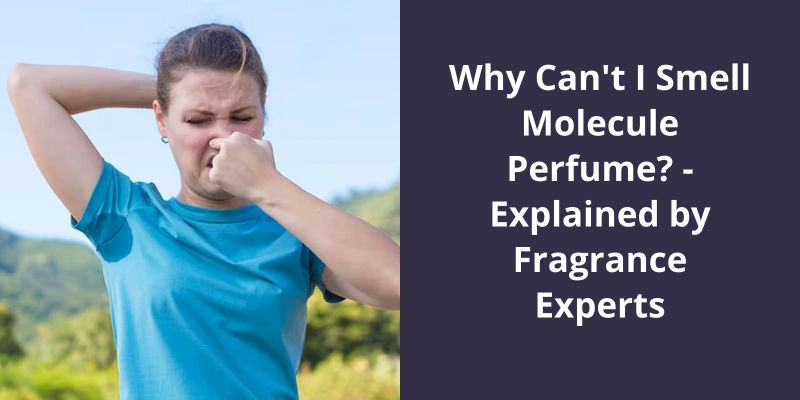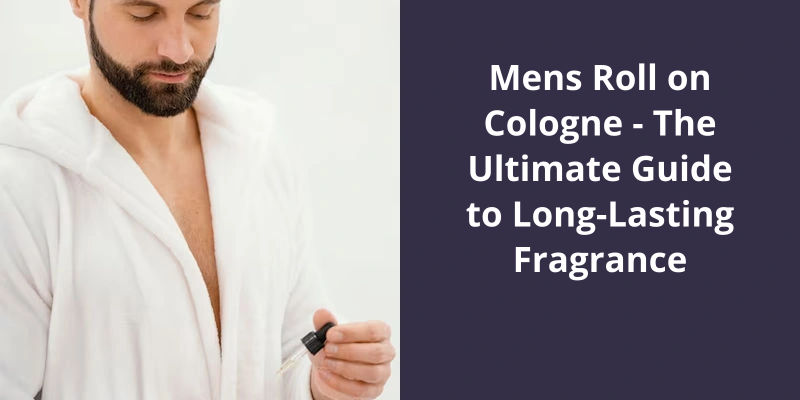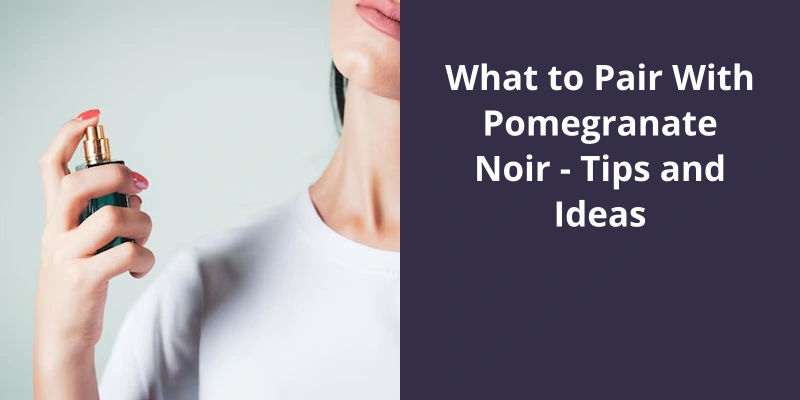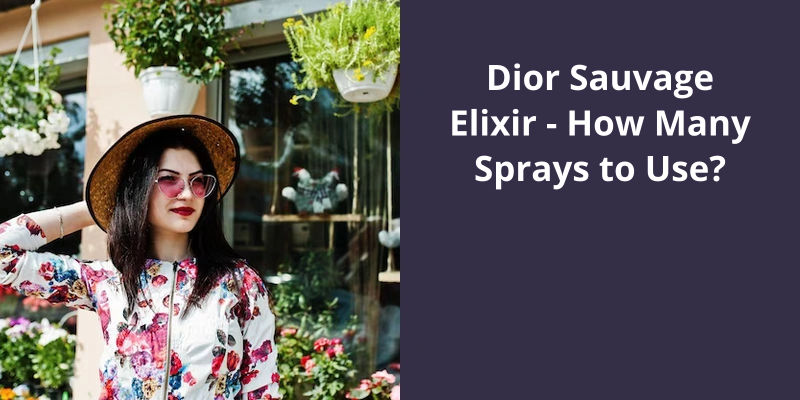The reason you can’t smell Molecule Perfume is mainly due to a phenomenon called olfactory fatigue. This occurs when your sense of smell becomes desensitized to a certain scent after prolonged exposure. Molecule Perfume, especially Molecule 01, is based on one key ingredient – Iso E Super, a chemical compound that people often have a hard time smelling. It’s either because their noses aren’t as sensitive to this particular compound, or they experience olfactory adaptation where their nose quickly becomes accustomed to the Iso E Super scent and stops registering it. Even if you can’t smell it, others around you probably can. Molecule perfumes are known to interact with the wearer’s body chemistry, meaning that its scent can vary greatly from person to person.

Why Can Others Smell My Perfume but I Can T?
The scent molecules are detected by the sensory receptors in your nose, which then send signals to your brain to interpret the smell. However, when you’re exposed to a particular smell for an extended period, your olfactory system becomes desensitized, therefore reducing your ability to detect the scent. This is why you may not notice the smell of your perfume, but others can.
Another factor that could affect your ability to smell your perfume is the composition of the fragrance itself. Different fragrances have varying volatility levels, which determine the speed at which the molecules evaporate and reach your nose. This is why it’s important to choose a fragrance with a good balance of top, middle, and base notes.
Some people have a more sensitive sense of smell than others, while others may have a limited ability to distinguish certain smells. Age, smoking, and certain medical conditions can also affect your sense of smell, which could result in your inability to detect your perfume.
One way to prevent nose fatigue and increase your ability to detect your perfume is to vary the scents you wear. Wearing the same perfume every day can desensitize your olfactory system, so try switching up your scents every now and then. You can also reapply your perfume throughout the day to refresh it’s scent.
The History of Perfume and It’s Cultural Significance.
Perfume has a long and rich history that dates back thousands of years. It’s been used for various purposes such as religious rituals, therapeutic practices, and enhancing personal charm. Over time, fragrance has played an important role in different cultures, serving as a symbol of status, power, and individuality. From ancient Egypt to modern-day France, perfume has been highly valued throughout history and continues to be an integral part of our daily lives.
Now that we understand the limitations of our own sense of smell, let’s delve deeper into the intriguing concept of Molecule 01 and how it’s created a stir in the world of fragrances.
Can You Smell Molecule on Yourself?
The secret to Molecule 01s allure is the synthetic molecule, Iso E Super, which is commonly used in perfumes to enhance other scents. However, when used on it’s own in high concentrations, it creates an interesting paradox where it isnt necessarily a scent but rather seems to intensify the natural scent of the wearers skin.
This is why some people have reported not being able to smell it on themselves, but others can certainly detect it’s presence. It’s all about the individuals body chemistry and how it interacts with the molecule. It’s almost like a secret scent that only certain people can pick up on.
Another interesting aspect of Molecule 01 is that it’s scent is said to be “genderless.”. It’s not specifically targeted towards men or women, and it seems to simply amplify the natural scent of the individual wearing it. This makes it a unique and intriguing option for anyone looking for something different and unconventional.
So while you may not be able to smell the specific molecule on yourself, it’s worth giving Molecule 01 a try to see how it interacts with your body chemistry and how others respond to the amplified scent. It’s a fascinating fragrance that’s garnered a dedicated following, and it’s not hard to see why. It’s enigmatic presence is sure to make a lasting impression.
The Science Behind How Our Body Chemistry Interacts With Fragrances and Affects How They Smell on Us.
This topic explores how fragrances interact with the chemistry of our body, and how this interaction can affect how the scent smells on us.
Perfume lovers often face a common dilemma: why does perfume smell bad at first? While many people adore fragrance, the initial scent can be overwhelming and unpleasant. It may seem strange, but there’s actually a scientific reason why this happens. The answer lies in the complex chemistry of perfume and how it interacts with your body and the environment. Read on to explore the fascinating world of fragrance and uncover the secrets behind that mysterious first sniff.
Why Does Perfume Smell Bad at First?
There’s a reason why perfume smells bad at first, and it all has to do with the way that the fragrance oils in the mixture react with your skin chemistry. When you first spritz on a new scent, it can smell overpowering and almost artificial. This is because the top notes in the fragrance are the most volatile and have the shortest lifespan. They burn off quickly, leaving behind the middle and base notes that give the scent depth and complexity.
As the fragrance develops on your skin, it starts to blend with your natural oils and body chemistry. This can alter the scent and make it smell different than it did in the bottle. In some cases, the scent may even become sour or unpleasant. This is why it’s important to try fragrance samples before committing to a full-size bottle. You want to make sure that the scent works well with your body chemistry before investing in it.
Some fragrances are designed for daytime wear, while others are better suited for evening events or special occasions. Wearing a heavy, musky scent to a summer picnic can be overwhelming and unpleasant for those around you. Make sure to choose a fragrance that’s appropriate for the situation to avoid any awkward moments.
In addition to body chemistry and occasion, the application method can also influence the way perfume smells. Spraying fragrance directly onto the skin can be too heavy-handed and overpowering. It’s better to mist the scent into the air and walk through it, allowing the fragrance to settle onto your skin more gently. This will create a more subtle, nuanced scent that won’t overwhelm those around you.
It’s important to remember that fragrance is a personal preference, and what smells good to one person may not be pleasing to another. There are also cultural differences in fragrance preferences, with some cultures favoring heavy scents while others prefer lighter, more floral fragrances. Ultimately, the key is to experiment with different scents and find the ones that work best with your body chemistry and personal tastes. Over time, youll learn what scents bring out the best in you and make you feel your most confident and beautiful.
Tips for Choosing the Right Fragrance for Your Skin Type and Personality
- Do research on fragrances that match your skin type
- Determine your preferences for scent notes
- Consider the occasion or purpose for wearing the fragrance
- Try before you buy by asking for a sample or tester
- Take your time in choosing and don’t rush the decision
- Consider the overall impression or mood you want to create with your fragrance
- Ask for recommendations from friends or fragrance experts
- Choose a fragrance that makes you feel confident and comfortable
- Remember that a fragrance can smell differently on different people
Source: Scent consistency: why what you (first) smell isn’t always what …
Now that you know why you may not be able to smell your perfume after a few minutes of applying it, let’s dive into the question of whether or not you should be able to smell your own perfume.
Should I Be Able to Smell My Own Perfume?
Have you ever sprayed a perfume on yourself, gone about your day, and then wondered why you can no longer smell that delightful scent? This is because our noses become accustomed to the smell of the perfume after a few minutes. It’s a natural phenomenon that occurs when the brain becomes desensitized to the smell, a process known as olfactory adaptation.
In fact, this is the same reason why perfume shops offer coffee beans to break the scent. The fragrant coffee beans help to reset the olfactory receptors in your nose, so you can smell other odours, and appreciate the true smell of the perfume you’re testing, rather than being overwhelmed by it.
However, it’s important to note that just because you can’t smell your perfume on yourself after a few minutes, it doesn’t mean that others can’t smell it. In fact, studies have shown that we tend to become used to the scents we’re surrounded by and may no longer notice them, while others can still detect them easily.
Finally, remember that perfume is meant to be subtle and savoured, not overpowering.
How to Properly Store Perfumes to Maintain Their Scent and Longevity.
- Avoid direct sunlight
- Keep in a cool, dark place
- Store in airtight containers
- Avoid storing in areas with fluctuating temperatures
- Keep away from humidity and moisture
- Store away from other strong scents
- Don’t store in the fridge or freezer
- Keep the original packaging if possible
- Don’t expose to air for too long when spraying
Conclusion
While some people find it easy to detect, others may struggle due to their genetic composition and sense of smell. Additionally, factors such as exposure to other scents, age, and health conditions can also affect an individual's ability to smell a particular aroma molecule. Therefore, it’s essential to consult a medical professional if one experiences a persistent inability to smell, as it could be a sign of an underlying health issue.





